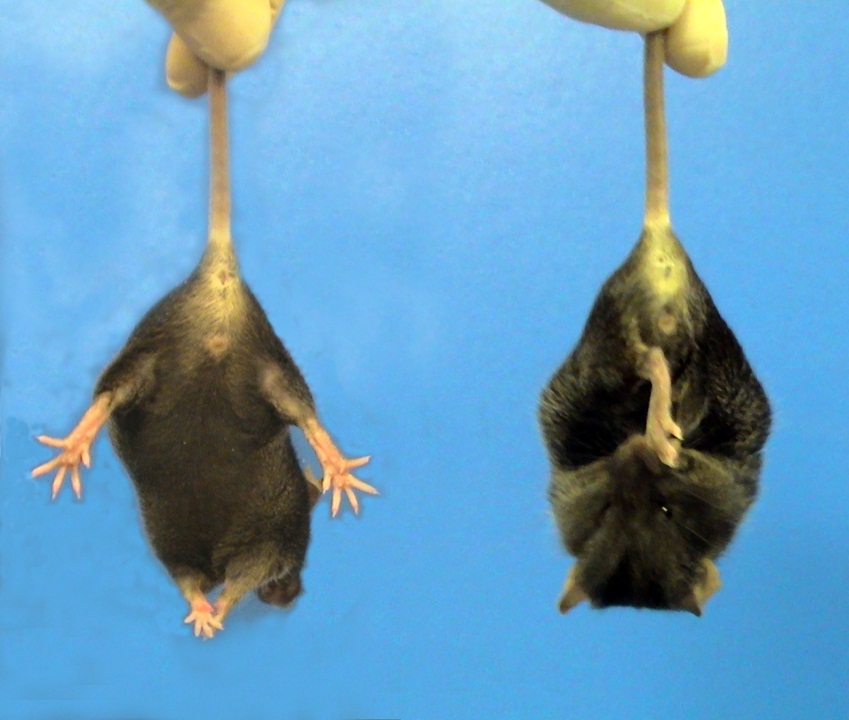
Could HD be caused by amino acid deficiency?
Does a specific amino acid deficiency contribute to the development of HD?

All the proteins in our body are made of tiny chemical building blocks, called amino acids. The internet was recently buzzing about a newly discovered link between one of these amino acids, cysteine, and Huntington’s Disease. Is it true, as some headlines suggested, that “Brain Degeneration In Huntington’s Disease Caused By Amino Acid Deficiency”?
Amino acids and proteins
Most of the work in our cells is carried out by tiny machines called proteins. Proteins are created by cells using instructions found in genes, encoded in our DNA.

Image credit: This is an open access article
Proteins are assembled in the cell by the sequential addition of tiny chemicals to a growing chain, sort of like beads on a string. The tiny chemicals that make up proteins are called amino acids, thanks to their chemical structure.
In cells from mammals, such as humans, there is a library of about 21 amino acids that are used to make proteins. From the simple sequences of amino acids are built all the complex machines our cells need to work.
Each of the 20 or so amino acids needed by our bodies must be present in sufficient amounts, or else our cells have a hard time making the proteins they need. Some amino acids are easy for our body to synthesize – these are “non-essential” amino acids. Others are more tricky to make, so we need a source of them in our diet, making them “essential amino acids”.
The HD connection
A group of scientists at Johns Hopkins University, led by Solomon Snyder, is interested in how the body makes and degrades one of these amino acids, called cysteine. In fact, Snyder’s group has a long-standing interest in a by-product of cysteine metabolism, a rotten-egg-smelling gas, called hydrogen sulfide.
One of the ways the body makes cysteine and hydrogen sulfide is through the activity of a protein called cystathionine gamma-lyase (CSE). To study the role of hydrogen sulfide in the body, Snyder’s team made a mouse that lacked the gene that tells cells how to make the CSE protein. This so-called knockout mouse approach is a common way to study the function of genes in the lab – just get rid of them and then see what happens to the resulting animals.
When suspended by their tails, mice that lacked the CSE gene made a very funny clasping motion – bringing all four of their limbs in towards their body. A number of mice with brain problems, including some HD mice, make this same strange clasping motion. It reminded Snyder’s group so much of HD mice that they decided to see if there was any connection between the activity of CSE and HD.
Cell findings
First, Snyder’s group looked at brains donated by people affected by HD. They found that the levels of CSE were decreased in the brains of HD patients, which might suggest that they have less CSE activity. This is an interesting hint that something might be happening, but so many things change in the brains of HD patients by the time they die that we have to be careful interpreting this kind of information.
Human samples are also hard to work with, so Snyder’s group turned to cells from HD mice. Again, in this cleaner system they saw reduced CSE levels. When they looked at how fast these cells made cysteine, the amino acid made by CSE, that rate was lower as well, agreeing with their idea that lower activity of CSE might be harmful for HD cells.
Mouse findings
Given how complex a disease like HD is, it’s not surprising that a large number of things change in cells carrying a mutant HD gene. Which of these changes actually matter, and which are a response to being sick?
To solve this problem in the lab, we often use animal models. With model HD mice, it’s possible to introduce experimental drugs or treatments that wouldn’t be ethical to try out in people carrying HD mutations.
So, in this case, Snyder’s team decided to feed some HD mice a diet enriched in cysteine. They reasoned that if the job of CSE is to make cysteine, and CSE levels are down in HD, maybe increasing cysteine levels would be helpful for HD mice.
HD mice fed cysteine in both their food and water did a bit better on some measurements used in the lab to approximate the symptoms of HD. Like human HD patients, HD mice become a bit clumsy as they age. We test this in the lab by having them walk on a spinning rod, like a lumberjack, until they fall off.
“When suspended by their tails, mice that lacked the CSE gene made a very funny clasping motion – bringing all four of their limbs in towards their body… some HD mice make this same strange clasping motion”
In Snyder’s test with cysteine, regular mice were able to walk on the rod for about 125 seconds. As expected, HD mice did worse, only staying on the rod for about 55 seconds or so. Those HD mice who took extra cysteine did better, lasting almost 80 seconds.
The particular version of HD mice used by Snyder’s lab die very early – by about 12-13 weeks all the HD mice had died. Given that the lifespan of a normal mouse can be about 2 years, these are some very sick mice! This is useful, because it lets scientists quickly test ideas in the lab, but it’s not like human HD where people live for a long time before they get sick.
Mice treated with extra cysteine had all died by 15 weeks of age. So they lived a little bit longer than untreated mice, but nowhere near as long as non-HD mice.
All together, giving a rapidly progressing mouse model of HD extra cysteine led to moderate improvements.
Cysteine, cysteamine, what’s the connection?
Raptor Pharmaceuticals, a small biotechnology company, recently announced the results of a human trial with a compound called cysteamine, which sounds an awful lot like cysteine. While cysteine and cysteamine share some parts of their chemical structures, they are different compounds. However, there is interesting data from an earlier mouse study suggesting that feeding mice a precursor of cysteamine leads to increased levels of cysteine in the brain. Still with me?
The idea, so far untested, is that the beneficial effects seen in the cysteamine human trial are related to that compound’s ability to increase cysteine in the brain.
This idea needs a lot more work in mice before we can decide what’s happening in people, but it’s an intriguing hypothesis that you can bet scientists will be following up on.
Complex answer to a simple question
There are always a number of ways to address specific questions in science – some easy and some hard. The current study makes a major proposal, which is that reduced action of the CSE protein leads to a deficiency in the amino acid cysteine, which in turn causes brain cells to die in HD.
So far, this idea has been tested in an “easy” way – by giving HD mice extra cysteine and see if they get better. The authors are currently working on the “hard” way to address this question, which is using genetic tricks to deliver extra copies of the CSE gene to HD mice.
Given the suggestive data in the current study, we guess that this should make mice better. So, we’re excited to add another compound to the list of things that make HD mice a bit better, but remain cautious about the interpretation of these results until we have more information from these on-gong studies.
Bottom line: should HD patients start taking cysteine as a supplement, based on these results? We think the evidence presented thus far is not sufficient, and that additional mouse and human trials are necessary before the risk is worth it.
Learn more
For more information about our disclosure policy see our FAQ…


